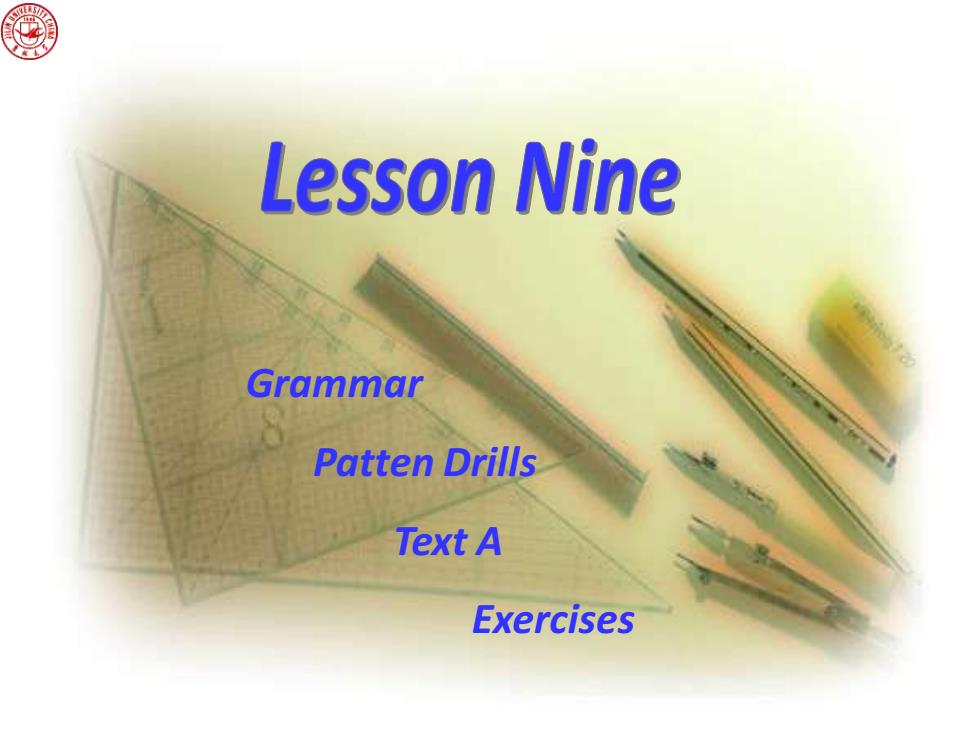
Lesson Nine Grammar Patten Drills Text A Exercises
Grammar Patten Drills Text A Exercises
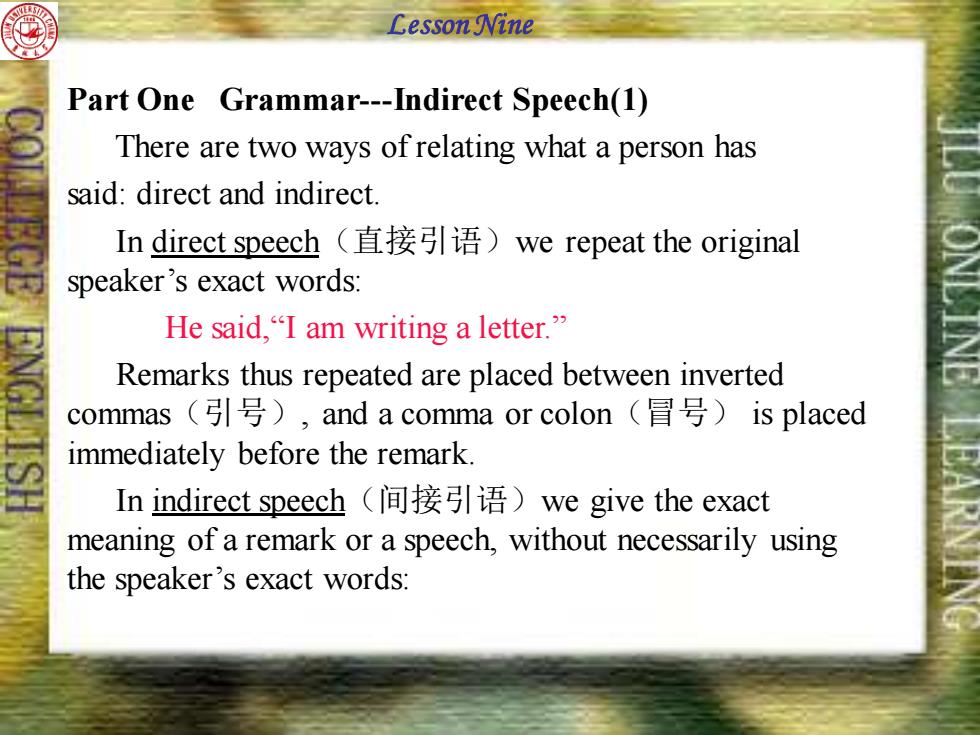
Lesson Nine Part One Grammar---Indirect Speech(1) There are two ways of relating what a person has said:direct and indirect. In direct speech(直接引语)we repeat the original speaker's exact words: He said,"I am writing a letter." Remarks thus repeated are placed between inverted commas(引号),and a comma or colon(冒号)is placed immediately before the remark. In indirect speech(间接引语)we give the exact meaning of a remark or a speech,without necessarily using the speaker's exact words:
Part One Grammar---Indirect Speech(1) There are two ways of relating what a person has said: direct and indirect. In direct speech(直接引语)we repeat the original speaker’s exact words: He said,“I am writing a letter.” Remarks thus repeated are placed between inverted commas(引号), and a comma or colon(冒号) is placed immediately before the remark. In indirect speech(间接引语)we give the exact meaning of a remark or a speech, without necessarily using the speaker’s exact words: Lesson Nine
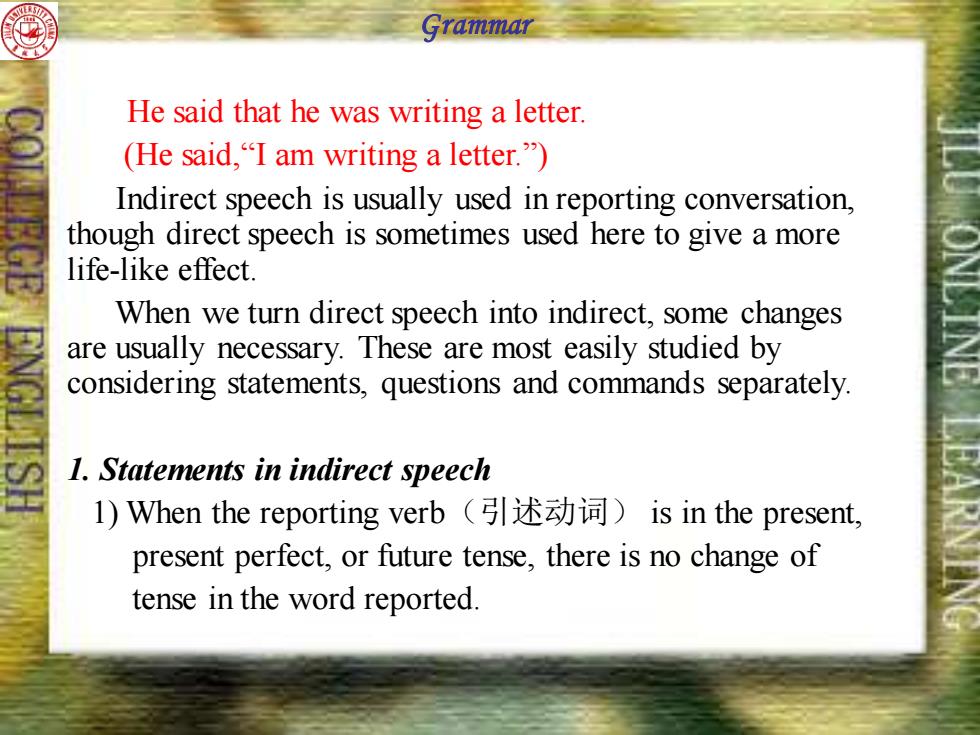
Grammar He said that he was writing a letter. (He said,"I am writing a letter.") Indirect speech is usually used in reporting conversation, though direct speech is sometimes used here to give a more life-like effect. When we turn direct speech into indirect,some changes are usually necessary.These are most easily studied by considering statements,questions and commands separately 1.Statements in indirect speech I)When the reporting verb(☑引述动词)is in the present,. present perfect,or future tense,there is no change of tense in the word reported
He said that he was writing a letter. (He said,“I am writing a letter.”) Indirect speech is usually used in reporting conversation, though direct speech is sometimes used here to give a more life-like effect. When we turn direct speech into indirect, some changes are usually necessary. These are most easily studied by considering statements, questions and commands separately. 1. Statements in indirect speech 1) When the reporting verb(引述动词) is in the present, present perfect, or future tense, there is no change of tense in the word reported. Grammar
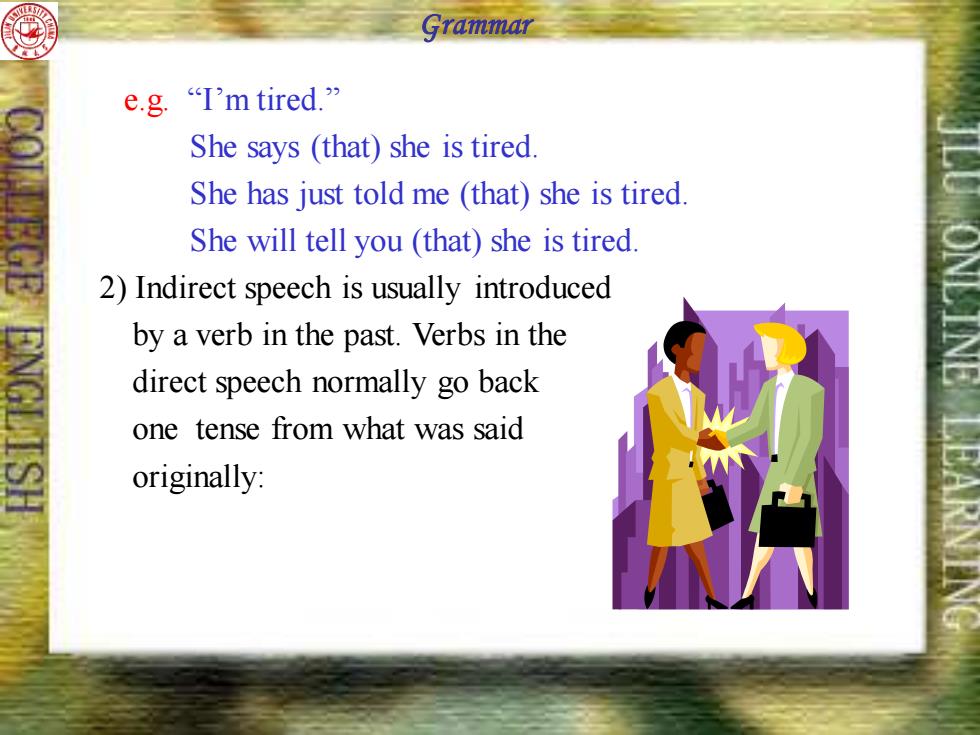
Grammar e.g."I'm tired." She says (that)she is tired. She has just told me (that)she is tired She will tell you (that)she is tired 2)Indirect speech is usually introduced by a verb in the past.Verbs in the direct speech normally go back one tense from what was said originally:
e.g. “I’m tired.” She says (that) she is tired. She has just told me (that) she is tired. She will tell you (that) she is tired. 2) Indirect speech is usually introduced by a verb in the past. Verbs in the direct speech normally go back one tense from what was said originally: Grammar
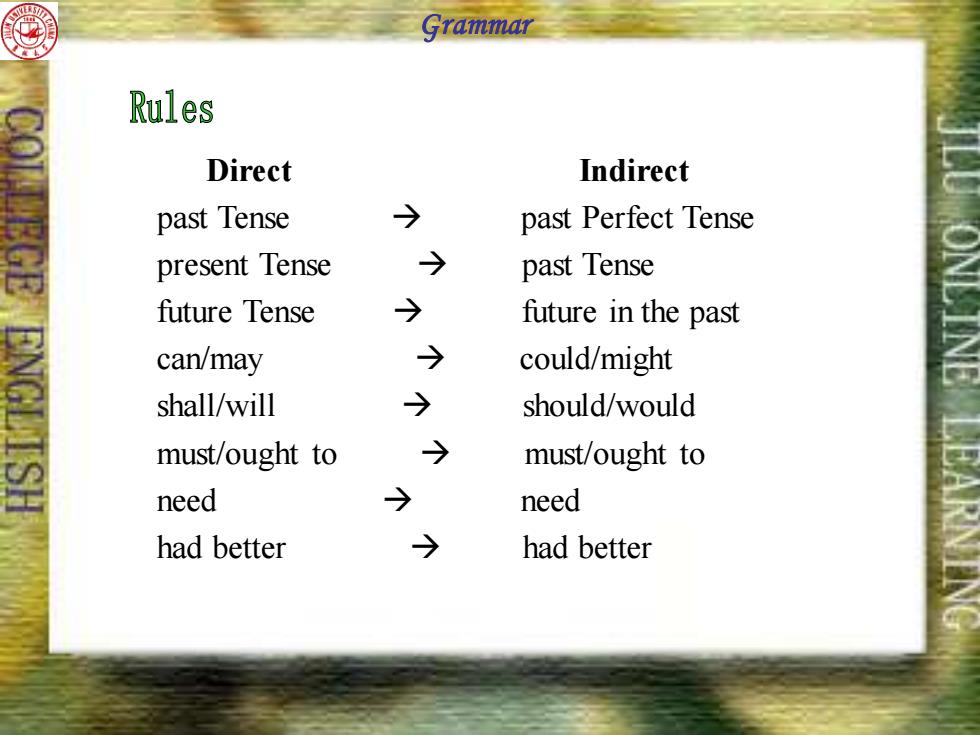
2 Grammar Rules Direct Indirect past Tense past Perfect Tense present Tense → past Tense future Tense future in the past can/may → could/might shall/will → should/would must/ought to must/ought to need need had better had better
Direct Indirect past Tense → past Perfect Tense present Tense → past Tense future Tense → future in the past can/may → could/might shall/will → should/would must/ought to → must/ought to need → need had better → had better Grammar